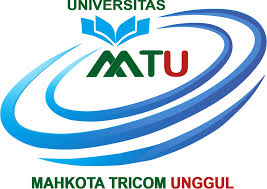Increasing the Readiness of Vocational School Teachers for Competition in the Industry 4.0 Era by Strengthening Practical and Transferable Skills
DOI:
https://doi.org/10.55927/jpmb.v2i11.6705Keywords:
Industry 4.0, Islamic Banking, Transferable SkillsAbstract
This research aims to improve the competency and expertise of Vocational School (VS) teachers majoring in Sharia Banking by strengthening their practical and soft skills. This program has two primary outcomes: first, an increase in vocational teachers' knowledge and practical skills, and second, sending four participants to obtain professional competency certification at basic career levels. Such programs for educators need to be further developed in the future so that VSs can generate graduates who are ready to compete in the Industry 4.0 era.
Downloads
References
Amalia, E. (2014). Evaluation of the model of education in Islamic economics and finance: Empirical evidences from Indonesia and United Kingdom. INFERENSI: Jurnal Penelitian Sosial Keagamaan, 8(2), 373–394.
Apriliyanti, D. L. (2020). Enhancing teachers’ competencies through professional development program: Challenges and benefactions. Acuity: Journal of English Language Pedagogy, Literature and Culture, 5(1), 28–38.
Greatbatch, D., & Tate, S. (2018). Teaching, leadership and governance in Further Education. Social Sciencie in Government, 1–115.
Herlina, W. (2011). The effectiveness of Indonesian English teachers training programs in improving confidence and motivation. International Journal of Instruction, 4(1).
Huda, N., Rini, N., Anggraini, D., Hudori, K., & Mardoni, Y. (2016). The development of human resources in Islamic financial industries from economic and Islamic financial graduates. Al-Iqtishad: Jurnal Ilmu Ekonomi Syariah, 8(1), 117–136.
Muhammad, R., & Nugraheni, P. (2022). Sustainability of Islamic banking human resources through the formulation of an islamic accounting curriculum for higher education: Indonesian perspective. SAGE Open, 12(1), 21582440221079838.
Organisation for Economic Co-operation and Development. (2020). VET in a Time of Crisis: Building Foundations for Resilient Vocational Education and Training Systems. OECD Publishing.
Prawiro, I. Y. (2019). Vocational teachers challenges in developing their professional competence in Indramayu. Vision: Journal for Language and Foreign Language Learning, 8(2), 169–180.
Rozalinda, R. (2014). Potret perbankan syariah di Indonesia. Al-’Adl, 7(2), 15–38.
Siddiqui, M. H., & Tripathi, S. N. (2010). An analytical study of complaining attitudes: With reference to the banking sector. Journal of Targeting, Measurement and Analysis for Marketing, 18(2), 119–137.
Terzieva, L., Luppi, E., & Traina, I. (2015). Teaching and assessing transferable/transversal competences. The case of Socces. Journal of Science & Research, 8, 1–22.
Zeithaml, V. A., Parasuraman, A., & Berry, L. L. (1990). Delivering quality service: Balancing customer perceptions and expectations. Simon and Schuster.
Zhongming, Z., Linong, L., Xiaona, Y., & Wei, L. (2021). Teachers and Leaders in Vocational Education and Training.
Downloads
Published
How to Cite
Issue
Section
License
Copyright (c) 2023 Ahmad Rifqi Hidayat, Ninik Sri Rahau, Nur Ellyanawati Esty Rahayu

This work is licensed under a Creative Commons Attribution 4.0 International License.



























